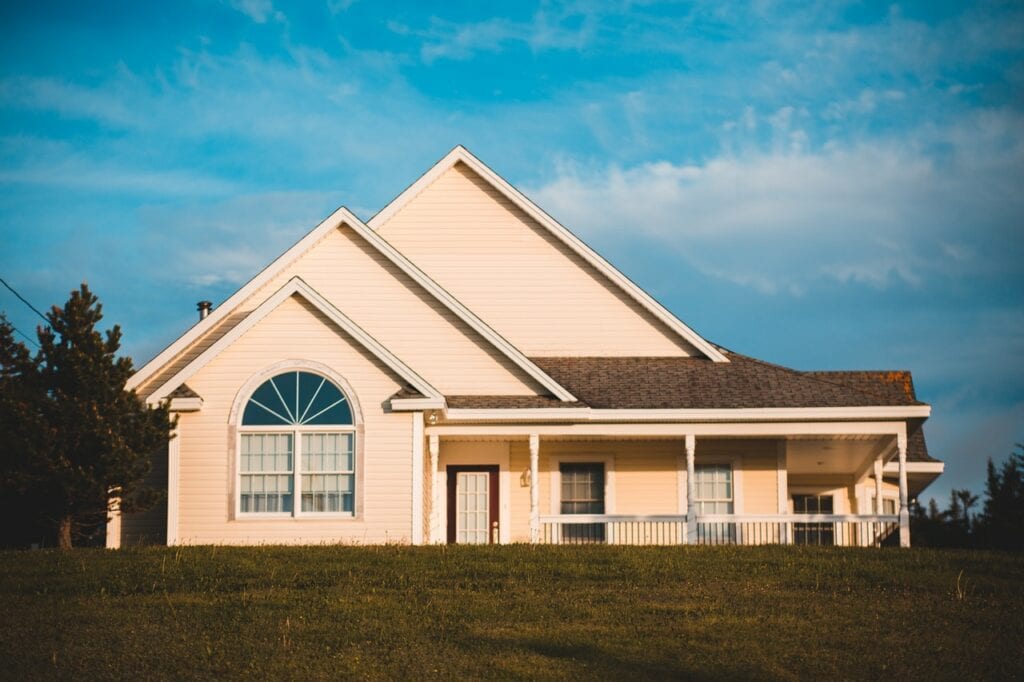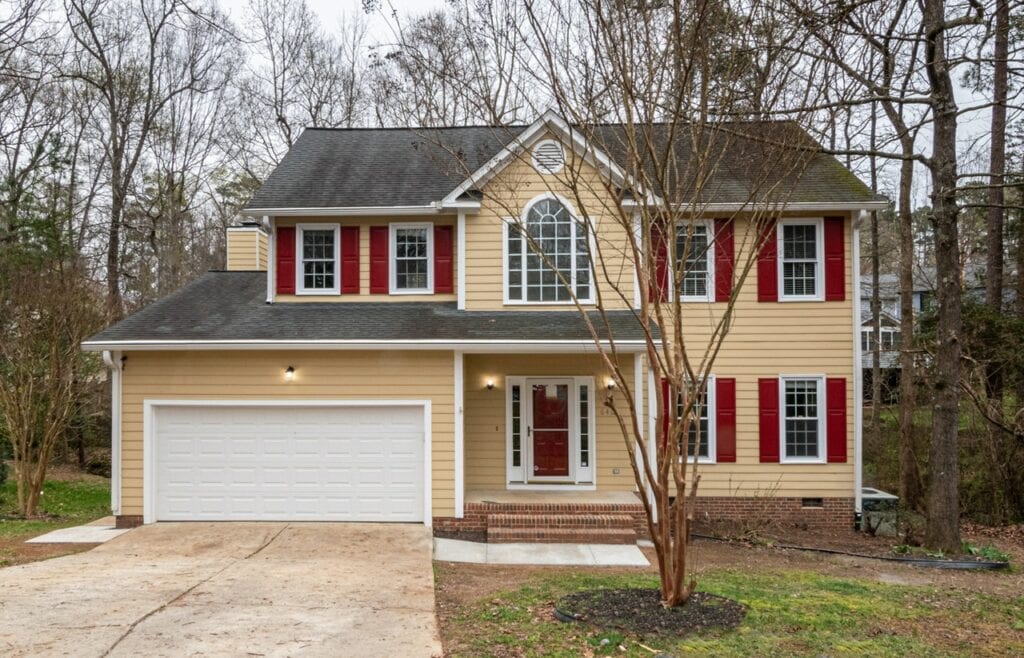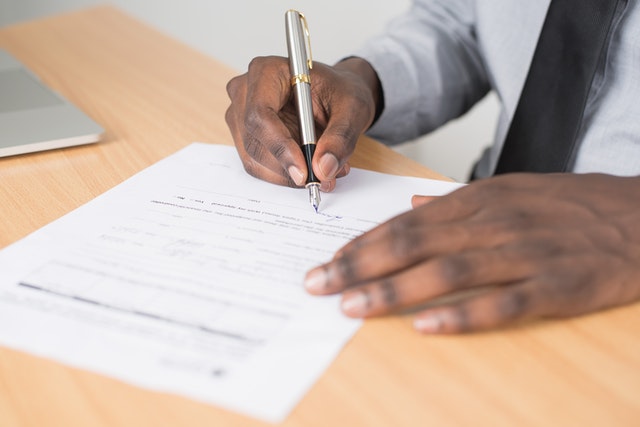If you are asking, "How long does it take to get a real estate license" then you are probably interested in getting a real estate license.
Our quick answer to the question, "how long does it take to get a real estate license" is that it depends, and it typically takes a few months.
Real estate licenses, issued by governments, give agents the ability to represent a buyer or home seller in the process of buying or selling real estate.
So how long does it take to get a real estate license and how much does it cost?
A real estate license price can differ depending on where you take the education course you need, which can cost anything from $300 to $1,000.
In addition, you will typically be charged between $100 and $200 for your real estate license application, fingerprinting, background check, and state licensing exam fees, so you should prepare for a total of $500-$1,200.
Our article will break down the different factors involved to answer the question of "how long does it take to get a real estate license".
A real estate agent is someone whose responsibility is to arrange the selling or renting of houses, buildings, etc. Each day is individual for a real estate agent; while this can be an appealing aspect of the real estate profession, there are various things a real estate agent does daily.
An excellent real estate agent:
The average that a real estate agent earns is $45,990 per year, but the income range is enormous. It is vital to note that most real estate agents work just part-time but must work a full 40 hours a week.
Now that we know what a real estate agent is let's look at the pros and the cons before we discover, how long does it take to get a real estate license!
Do you know what a sub-agent is? Many people don't, but if you are interested in the real estate world, check out our guide to delve deeper.

Agents are positive people!
Another pro is how much you can influence the speed at which you get your real estate license. So, how long does it take to get a real estate license depends on how fast you take the steps to get it!
Before you start thinking, "how long does it take to get a real estate license" you need to be thinking if real estate is really your passion.

Passion is Key!
Your focus should be the passion for being a licensed real estate agent and satisfying your customers and making them happy, so learn the requirements to get a real estate license.
It doesn't happen overnight to get a real estate license, but it also doesn't take as long as certain other professional licenses.
Before you may become a licensed real estate salesperson, you also do not have to have a bachelor's degree.
So long as you have a high school diploma, that's all you need to pursue a career in real estate; and a few states do not even require that.
So, how long does it take to get a real estate license?
On average, getting a real estate license in a typical classroom takes at least 4-6 months. If you are taking your real estate pre-licensing course online, depending on how quickly you want to pace yourself, it can take as little as eight weeks.
However, that said, three variables can either speed up or slow down the process:
The process, qualifications, cost, and timetable for becoming an agent vary from state to state, so it's essential to contact your local real estate office to learn exactly what steps you're going to need to take.
The coursework to qualify to sit for the real estate test is extensive in some states. Some may even require a degree from college; this is not the norm, however.
Most states have a prerequisite number of specified coursework hours to be completed at an approved, accredited school for real estate.
The most significant difference between states is what real estate education requirements must be met. See how many real estate pre-licensing course hours are required in your state. In all states, when you begin your career, you will have to work with a real estate broker.
In some states, before you even take the licensing exam, you'll need to find a broker who will sponsor you.
If you are already a licensed real estate agent, see if there is a reciprocity arrangement between your current state and the state where your license has been issued.
Your pre-licensing conditions can be less if a reciprocity arrangement exists. This doesn't mean you do not need a license in your new state, but you could be able to skip some steps in the licensing process.
So, now you see why we say, "it depends" when answering the question, "how long does it take to get a real estate license". Let´s look at other factors that affect the question "how long does it take to get a real estate license"

It's time to get to work. When applying for a real estate license, there are steps and estimated costs that you can anticipate.
Let´s look at the process and then you will be able to get a better-dissected picture of how long does it take to get a real estate license.

Courses affect how fast you get your license the most. How long does it take to get a real estate license depends a lot on how you study for it.
Local colleges, technical schools, and state-approved third parties may provide real estate education. Whether you want to take the course in person or online, you'll have to decide.
The choice you select will affect the time it takes to fulfill the criteria for education. In-person courses will be taken over the course of a semester at a real estate school, local commission, or college.
Online courses let you go at your speed, and you can finish them in weeks instead of months. Some pre-licensing schools meet over many weeks for a set number of lessons, while others encourage you to move at your own speed through courses.
Know what your choices are and choose the best one for your lifestyle and schedule.


When you complete the pre-license course, you have to take a final test to become a real estate agent. It's a smart idea to get your exam application submitted as soon as you complete the requisite real estate courses.
The licensing exam can take between 1.5 and 3.5 hours to complete, depending on your state. Be prepared to pay an examination fee of $15 to $60. Approximately 100 multiple choice questions will be asked.
Although the minimum passing score varies by state, many require between a 60 percent and 75 percent score to obtain your license.
If you didn't pass, don't worry, things happen. Within two years after submitting your application, you can take the exam as many times as you need to.
Send your test results, license application, and
application fees after you've passed the exam successfully.
It will cost between $50 and $250 for license application fees, and you may be asked to undergo a background check that will cost between $40 and $80.
To find out if you need to have Errors and Omissions insurance before you apply, search your state's real estate commission.
As a result of their real estate practice, E&O insurance protects real estate agents from financial losses and lawsuits filed. Your brokerage will offer E&O insurance to you sometimes.
If not, before you submit your application, you might be required to obtain it.
You have to be at least 18 or 19 years old in every state and either have a GED or high school diploma to apply for a real estate license. You also should also be able to work in the United States.
Your license can take between one week and two months to process after you've submitted your application.
If you are interested to see what the process of selling your own house looks like check out our article.
When you finally have your license, it still does not mean you can instantly start selling homes. Most states require you to work with an estate broker who, as a sponsor, funds the first couple of years.
It's a great idea to find a broker before you graduate from your training course because you'll probably need a brokerage to generate income.
The brokerage you work for determines what kind of work you do, the mentor-ship you get, and the company culture you are a part of daily.
There are questions to ask for ensuring you will love where and with who you will work with:
Make sure you understand their commission structure before accepting an offer from a brokerage.
It is a lot of work to get your real estate license, so do not forget to renew it. Normally your license expires every two or four years, but check your state's requirements to see when your license will expire.
Many states require agents to complete a certain number, of course, hours to be eligible for renewal.
You should join the National Association of Realtors (NAR) to call yourself a realtor. This is required if you want to participate in most Multiple Listing Services (MLS).
If you arent a NAR member, you carry the title of a real estate agent and can legally work in the field, but your earning potential is limited without access to the MLS.
Steps to follow for getting a job:


Some individuals may claim that they are agents. "The term "realtor" can be used by others. These are different types of work.
A real estate agent works for real estate brokers. They can't work alone. They also need to pass the state requirements and obtain a real estate license. An agent can only be under one brokerage in certain states.
Brokers work for themselves and employ agents for real estate. But the state requirements can be harder because of the nature of their business and work.
The term "realtor" is not common. Only those who are members of the National Association of Realtors (NAR) can use it.
If your goal is to have access to a great number of deals, getting licensed may be worth it. Real estate is a career with amazing rewards and many more challenges. And it requires hard work and sacrifice.
The question, "how long does it take to get a real estate license?" depends on the state and whether you do online or in-class school. We hoped you liked our article "how long does it take to get a real estate license".
By reading this article you should be now able to determine, how long does it take to get a real estate license, in your case.
Remember that how long does it take to get a real estate license depends on the individual as well!
Also, if you liked our article "how long does it take to get a real estate license" check out our article "11 Tips When Making an Offer on a House".
How to find real estate deals out there? It can be challenging to find deals because of the high amount of competition. Some people are not looking in the right places, and many people only count on a multiple listing service (MLS).
Sometimes the deals don't ever get to the MLS because they get bought beforehand. Meaning, you have to look outside the box and be clever.
How to find real estate deals tip number 1.
There are extra things to do for catching the best deals on the MLS. Look at it with your agent and set it up the right way.
Setting up automatic email alerts will tell you when there is a deal fitting your criteria, and that's how you are the first one to know about it.

Agents can improve the home buying experience!
How to find real estate deals tip number 2, your network!

Friends Help!
Letting people know you are buying real estate can be very helpful. Asking never hurt, people might know more than you think, and they can help you.
So make sure to tell people in groups etc. Do your friends and family know that you want to buy real estate? If not, let them know.
Don't forget to find a real estate club in your area and participate. Start talking to people and get to know them.
Investing profitably in real estate is as much about who you know as what you know. The most successful real estate investors have a deep network of contacts.
However, it will take time to build a network if you're a new real estate investor.
Wholesalers are experts at finding undervalued houses. The good thing about networking with a wholesaler is that they negotiate with the seller and put the property under contract.
Still, they do not want to buy the property, but instead, they need a real estate investor to take them out of the deal and close the purchase.
Just remember that a wholesale investor is selling the contract more than the property itself.
How to find real estate deals tip number 3, utilizing the wonderful web!

Unleash the power of the Web!
There are a lot of different online marketplaces, so browse the Internet.
Find some marketplaces in your area where you can look for deals. Investors can buy and sell property around the world via global real estate websites. Investing globally may seem like an appealing choice at first glance.
The complexities of international tax law, fluctuating exchange rates, and the possibility of ongoing trade wars, however, generate potential problems for international real estate investors that are not found here in the United States.
Crowdfunding sites allow real estate investors to pool their money for purchasing a commercial property, single-family, and multi-family homes with other investors.
While crowdfunding is an excellent way to diversify investment capital, one of the most major drawbacks is limited ownership choices.
Instead of directly owning the real property, you get a small share of the entity that owns the real estate. Fractional ownership of real estate has some benefits, but investors should have freedom of choice.
How to find real estate deals tip number 4, finding your niche helps!
The best investors in real estate build a path to their success. Finding your niche helps you arrive at your destination in real estate investment.
Although that sounds quite simple, one of the most significant problems of investing in real estate is that there are a number of niches to choose from.
Choosing a niche and sticking to it allows you to remain focused on the path to success. When you know your niche, concentrating on finding deals that suit your investment strategy is the next move.
How to find real estate deals tip number 5, get off the beaten path!

A way to find real estate deals is by looking at off-market properties. Off-market real estate is for sale, but it is not listed on the MLS or online markets. The fact that there is less competition is one of the best benefits of off-market real estate. It will keep you a step ahead of the other investors in real estate out there.
How to find real estate deals tip number 6, use adverts!
-You might want to put a sign on your yard that says you buy houses. People that walk past will see it, and you might get contacted.
-Renting a billboard might get your message out there for tons of people to see. For finding motivated sellers, don't forget to look if there are signs put by owners.
-Consider placing a sign on your car so everyone you pass will see it.
-Contact the radio station and find out if you can get a commercial for you buying houses.
-Place an ad in a newspaper, because believe it or not, there are still people reading them.
-Post an ad in a landlord magazine.
-Pay Google for an ad so you can show it at the top of the search.
-Post an ad on Craigslist that you are buying real estate or look for people selling their properties. Consider using automation tools that notify you with keywords.
How to find real estate deals tip number 6, help a homeowner who is struggling with their property!

Help the stuck homeowners!
Lenders foreclose on homeowners that don't keep up with their mortgage obligations. The process differs within states, but there is a chance for investors to buy from the property owner before foreclosing.
A number of homeowners facing foreclosure are motivated sellers trying to avoid the lousy credit of losing their homes to the bank.
However, if they end up in court, showing up there and bidding for the house might able you to buy it. The bank owns real estate-owned property once the foreclosure process is done. Banks aren't in the business of holding real estate and an REO property represents a non-performing loan to the bank.
Often banks are willing to sell at a discount to an investor. Banks auction houses when the property was, for example, foreclosed on.
Auctions are a fantastic source of good deals for investors, but there is also a high level of risk because sales are "as-is" and are paid for in cash.
You can use eviction records for finding property owners who are motivated to sell. Of course, this might take more digging than other ways. Eviction records are usually available through the local court clerk. You might even have access to the records online.
That means you can many times find them with third-party websites. You can also try to get the contact information for the landlord you want to market to.
Also, if someone didn't pay their taxes, you have the right to purchase their property, and once again, there you will have a great deal.
How to find real estate deals tip number 7, brokers!
Find yourself a good commercial broker who knows your market if you're looking for commercial real estate. Typically, these are different from residential brokers, and they can be a key part of your team.
How to find real estate deals tip number 8, check out probate properties!
A contact who is a lawyer can help know which properties are likely to get in the market soon. However, you don't need to know a lawyer for finding probate properties as your real estate deals.
Probate properties are often a lot more affordable than traditional properties because they are sold via a court-appointed representative as a part of a will or to cover debts.
An easy way to find probate properties is by asking to speak with who handles probate matters.
It's a great idea to ask for records from at least six months. You will be able to review all probate cases and contact the executor handling the property directly.
You will be the first person a potential seller speaks with. A motivated executor may sell a property to you directly to avoid fees or get around losing money while a property is sitting on the market.

How to find real estate deals tip number 9, be fast!

It's often not the highest offer for a property that gets accepted; it's merely the first. If you are looking to catch a good deal, be fast.
Already get a pre-approval, and don't forget to have your real estate agent set you up with automatic email alerts notifying you. Then, check it out fast, and make an offer the same day if you can.
Another way to find the right deals is by looking for properties that have been on the market for a long. Those owners are often happier to sell for a discount because they are tired of holding on to the property.
They will usually have been making two mortgage payments for months (or years) and will entertain almost any offer.
How to find real estate deals tip number 9, tread carefully!
There are some traps you should avoid while looking for the best deal. It would be best if you were cautious about other competitors and telling too much. It is not impossible to network while still keeping your strategies on point.
Be sure you only market to the right people. Targeting a wide net is not the best approach whenever it comes to finding motivated sellers.
You also can't convince a person to sell their home if they don't need to. It would be best to do your due diligence in case of pursuing a foreclosure property.
You should also make sure the property doesn't have any occupants.
How to find real estate deals tip number 10, approach privately!
As most of the United States is experiencing today, great deals can be hard to find in a hot real estate market because many people are looking for a place. One house for sale might get a dozen offers in some areas in the first few days.
That's why one of the best methods real estate investors use is contacting owners directly and asking them to think about selling. Many of the population will entertain that option at any time; reach out before the home is listed.
One of the best people to target is absentee owners, which means a person who owns a property but isn't living there. They might be landlords or owners who inherited their houses and are simply confused about what to do.
You can find these deals in many ways. Tallgrass and a driveway that requires fixing are signs that a homeowner has left. It would help if you were driving around to find properties that don't look that alive.
You can often get some of the best deals on houses for sale by approaching owners that don't have the desire or ability to take care of the property anymore.
Don't forget to look for vacant homes. Sometimes the deals don't come to you, but you have to go to them. Look around outside and see if there are any vacant properties. After that, go home, search for the addresses you gathered, and contact the owners. Sending a letter is always the best.
It sure helps to look at what's going on in the market around you when looking for property deals, but you can also find a ton online.
Our tips are great ways how to find real estate deals. We hope our list of "how to find real estate deals helped you! Do you have any other tips to add to our list "how to find real estate deals"?
The Internet helps a lot, from digging up background information regarding a property to giving you the tools to work out a deal.
The local county clerk's office's website will be your most excellent resource for finding records of properties going on sale due to legal matters.
Then you can access a tool to find people that makes it possible to find a property owner's address.
The Internet can continue helping you even when you did your research and tracked down the perfect property. Now it's time for concentrating on raising capital for real estate deals.
If you want to start generating wealth, being a landlord can be a great option. And being one can take on many different forms. The question we are answering is, "how to be a landlord?"
You may have never met your landlord if you rented in the past. That's probably because your Landlord wanted hired people to run the property and preserve it.
You can be hands-off almost entirely, letting others do almost all the work for you.
Or you might want to manage it on your own. And safe money that you would have otherwise spent on property management. That is why we wrote this article, "how to be a landlord."
If you own a property or consider purchasing one to become a landlord, it is essential to know that it requires hard work and financial resources.
Ensure it can deliver positive cash flow under current market conditions before buying an investment property or renting one you already own. Let´s see what "how to be a landlord looks" like in action.

Plan your Success!
In order to make the investment property worth your time and effort, determine how much you want to gain. Budget ahead of your real estate financial projections and prepare for surprise costs and missed rental payments.
For a first-time landlord who might be using a portion of their life savings to buy an investment house, this is extremely relevant.
This is the most important part to consider of planning how to be a landlord. Check out our other resources when you are considering making an offer on a piece of real estate.

The second thing to consider on our list of "how to be a landlord" is the expenses.
Common expenses consist of landlord insurance, maintenance costs, rental licensing, mandatory inspections, annual registration fees, and property and rental income tax.
Even when your rental might stay empty for a while, there are still costs like mortgage payments, property taxes, utilities, and marketing fees.
Now, additional expenses could include accounting fees, property management, and legal fees.
Figuring your expenses beforehand is a part of the planning process of how to be a landlord.
The 3rd thing to consider on our list of "how to be a landlord" are details of the property.
If you've found several properties that make for an attractive investment, some outstanding features are safety, walkable neighborhoods, a short distance from your home, and easy access to the city center.
Before purchasing, make sure that the rental is in good condition and within your financial budget.
Many landlords own condos, single-family homes, and multi-unit buildings. Depending on the kind you end up buying, it determines the amount you'll have to finance, budget for repairs, and, most significantly, the profit you will gain.
The bigger the property, the more it may cost to make repairs.


Prepare!
The 4th thing to consider on our list of "how to be a landlord" is is your level of preparedness.
Ensure your rental is livable, and if there are any issues, fix them for a more comfortable and attractive rental. Clean the property thoroughly, make needed repairs, check the alarms for smoke and carbon monoxide and have the electrical system tested professionally.
Make sure all windows, gates, and doors work properly.
You need to screen out potential tenants who could fail to take care of your property or maybe even vandalize it time after time.
And it would be best if you stayed clear of those who may not or maybe not at all, pay their rent on time.
Before the tenant moves into the property, take pictures of the condition of the rental. That is the only way to know if the tenant destroyed something so their security deposit can compensate for the damage.
If individuals in your target market only want a roof over their heads, protecting your asset's value should be your focus.
Some landlords "renter-proof" their properties to counteract the risk of the rental becoming a pigsty. That could mean covering hardwood flooring easily damaged or removing any fragile features that could be abused.
This is often excellent for the renter since they get to live with peace of mind as a homeowner. However, if the tenant cares less for the home than the owner used to, that can change quickly. But keep in mind in the context of your ads, renter-proofing has to be mentioned.
The 5th thing to consider on our list of "how to be a landlord" is how you will get your tenants.
Find a fitting tenant by posting advertisements, organizing open houses, and using other strategies to attract tenants. Staging the property can give potential tenants a good idea of how much furniture fits in the rooms.
Handing out flyers that include features, photos, and instructions to apply is effective.
A landlord in a college town might want to position advertisements to attract college students or faculty through a local university's housing office.
Medical facilities also have an office looking for hospital staff accommodation, and contacting them and letting them know about your available rental could be worth your effort.
However, because it is possible to do most rental property marketing online, this step is smoother than you would expect. Don't forget to have the highest quality images possible of the interior and exterior.
Processes are the most important key to managing anything in life!
The 6th thing to consider on our list of "how to be a landlord" is your application process.
The screening process helps you to pick the most reliable renter. The rental application should provide you with personal information, occupants and possible pets, income, prior evictions, and current and previous residences.
As a landlord, you should always conduct a background and credit check when you find a fitting tenant. It can mean calling the previous landlords of the tenant.
Ideally, you want a tenant whose income isn't going to be extended to pay rent every month. The rent should only be one-third of the monthly income of your tenant.
But is punishing someone for eviction that possibly happened decades ago right? A low credit score or sickness could be well behind the applicant at this point.
Now, excluding them for something that isn't their fault could be cruel. Although giving second chances isn't your problem, consider being reasonable and try talking about things that potentially bother you.
You may exclude an applicant for a single stain on any of those records if you have several other, better potential tenants. But you may want to dig a bit deeper, especially if you lack options.

Be thorough and consistent

Be like this Guy!
The 7th thing to consider on our list of "how to be a landlord" is to avoid being a pushover yet remain diplomatic.
Understand that looking at your rental property as a business more than anything else is essential. Accepting a partial payment or getting the rent paid late might make it difficult in the future to evict your tenant. Don't be too nice.
Do your Research!

The 8th thing to consider on our list of "how to be a landlord" is the legal requirements.
Know the federal, state, and local laws, regulations, and building codes that apply to rentals once you have decided to become a landlord. If the tenant has a disability, making reasonable accommodations in rules might be needed.
For example, if your tenant happens to go blind and needs a guide dog despite pets aren't allowed in the rental, call and ask to talk to the person in the department that handles rental property rules and regulations.
The 9th thing to consider on our list of "how to be a landlord" is getting landlord insurance.
If the property is different from the owner's primary residence, they need to inquire about the landlord's insurance. Landlords insurance typically covers your property's structure, loss of rental income, and medical and legal costs.
If the rental happens to be on the same property as the primary residence, then the different options available to the owner would be the subject of a conversation with the insurance company. Know that the coverage needed should match your particular situation.
Various online services create a personalized lease for the state where the rental is located. Clear statements of who is responsible for different duties, such as keeping the yard to ensure equipment maintenance, are essential things to include in a contract.
These forms also have a clause that can be used where renters are expected to get renter insurance, which is a wise move because the homeowner's or landlord's insurance will not cover the tenant's personal belongings.
The 10th thing to consider on our list of "how to be a landlord" is setting realistic rents that will attract renters.
A fair amount of rent is essential to calculate. With setting rent too low, you're going to miss out on potential profit, but if it's too high, you're not going to attract tenants.
Fortunately, it's not too tricky to find out how much rent to charge. Get started by testing the cost in your area of similar rentals.
Besides surveying the market for similar properties, and rentals in your market, know if the property holds a mortgage or if it was paid off.
If the market is more than enough to pay the mortgage, a landlord would be smart to set aside 20% of the rent per month to cover the property's potential maintenance.
Landlords often forget to take such preventive action and may be caught off guard when unexpected repairs occur.
The 11th thing to consider on our list of "how to be a landlord" is to sign the tenant to a lease agreement. For both you and the tenant, the lease agreement sets rules and expectations.
It is critical to ensure that all applicable laws comply with your lease. For finalizing lease agreement:
-run the lease by a legal professional
-customize your lease
-review the lease with your tenant
-sign and date the lease
-Provide a copy of the lease to the tenant
You can hire a property manager to take care of the lease agreement or use a tool online. Just make sure that the standard policies and terms are met in your lease.
The 12th thing to consider on our list of "how to be a landlord" is considering hiring a property manager.
If you are trying to escape many of the problems that landlords have to deal with, hire a property manager to handle the whole or just part of the rental process.
Sudden repairs that need to be done can pop out of nowhere, and these urgent cases might need immediate attention.
However, if you want to minimize your interaction with the tenant, hiring a manager will be worth it. Sure it's an extra expense and will most likely have an impact on your profit.

The 13th thing to consider on our list of "how to be a landlord" is getting your processes organized.
It's a lot of work to manage a rental property, especially for a first-time landlord. You'll find it more effortless to list deductions and file taxes if you have an organizational method and stick to it.
-Document all communication with anyone who uses or works on the property
-Create receipts for payments and deposits
-Keep printed and digital copies of all documents
-Store essential documents securely (applications, lease agreements, repair bills, etc.)
-Create a filing system for receipts from marketing costs and utility and reimbursement bills
The 14th thing to consider on our list of "how to be a landlord" is your plan of action to maintain your property.
Not only does maintaining the property keep your tenants satisfied, but it means that you will be able to continue renting to future tenants without having to make big improvements or repairs.
-Pest control
-Property walk-throughs
-Confirming and updating your landlord insurance
-Cleaning gutters
-Servicing HVAC units
Setting a percentage of your rent aside for maintenance and repair tasks is a smart idea. The 50 percent rule is used by many landlords, where they set aside 50% of their rental income for repairs, maintenance, taxes, and insurance.
You should expect to spend about 1% of the value of the property on care over the course of a year.
Know rules and regulations; a landlord can make appropriate repairs and improvements to the rental. However, there are some things that you probably shouldn't attempt to fix; they can become costly.
Sean Ormond indicated that being a landlord is about managing people. Keep it business and don't become too close with your tenants. This will help separate the roles and responsibilities for each party.
Collecting monthly rent sounds like a good idea, but also understand that some months there might be emergency repairs needed, which will eat up profit.
Some think that the best decision they have ever made is to become a landlord. But it can require a tremendous amount of energy, depending on how hands-on you want to be.
And, particularly in the early days, it can bring sleepless nights. So it is important that you learn how to be a landlord in order to be successful.
Ensure that you are prepared for the work involved. It's important to know what you've signed up for, from advertising for new tenants and completing legal agreements, gathering deposits, and taking care of utilities.
You might want to consider hiring a property management company if you have a property that you want to rent out but do not want to handle the day-to-day tasks.
You should find a real estate attorney as a landlord to help you handle the possible legal problems you can face. Renting requires several federal and state rules, including such issues as discrimination, security deposits, late rent, lease agreements, and maintenance.
You're going to have to search to find decent tenants, and you're going to have to be willing to evict bad tenants if the tenants are not so great.
We hoped our list of things to consider on "how to be a landlord" helped you.